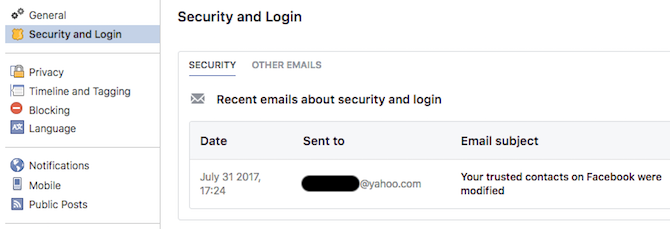Facebook announced on Wednesday the introduction of a new security feature designed to help users check if the emails they receive are legitimate or if they have been sent by cybercriminals.
When it detects a suspicious login attempt or a password change, Facebook notifies users by sending them an email from the Facebookmail.com domain. Cybercriminals often try to spoof these emails in an effort to lure internauts to phishing or other malicious websites.
Users can now check if the email in their inbox really does come from Facebook by going to Settings -> Security and Login -> See recent emails from Facebook. Here they can see recent emails, including ones related to security and logins, and if the message from their inbox is not listed, it’s most likely fake.

“If you’ve checked this tool and determined that an email you received is fake, we encourage you to report it to [email protected], and if you believe your account has been compromised due to a phishing attempt, you may attempt to regain access to your account at: facebook.com/hacked,” said Scott Dickens, Product Manager with Facebook Account Integrity.
The new feature has apparently not been rolled out to all accounts so users who don’t immediately find it in the settings menu should check back in a few days.
The new feature comes just weeks after the social media giant’s founder and CEO, Mark Zuckerberg, claimed his company has prioritized security over profit.
“We’re serious about preventing abuse on our platforms. We’re investing so much in security that it will impact our profitability. Protecting our community is more important than maximizing our profits,” Zuckerberg said.
Facebook recently awarded researchers $100,000 for discovering a novel technique of detecting credential spear-phishing attacks in enterprise environments. The method combines a new anomaly scoring technique for ranking security alerts with features derived from the analysis of spear-phishing emails.
Related: Facebook Flaw Allowed Removal of Any Photo
Related: Legitimate Facebook Domain Serves Phishing Page
Related: Facebook Releases New Certificate Transparency Tools













